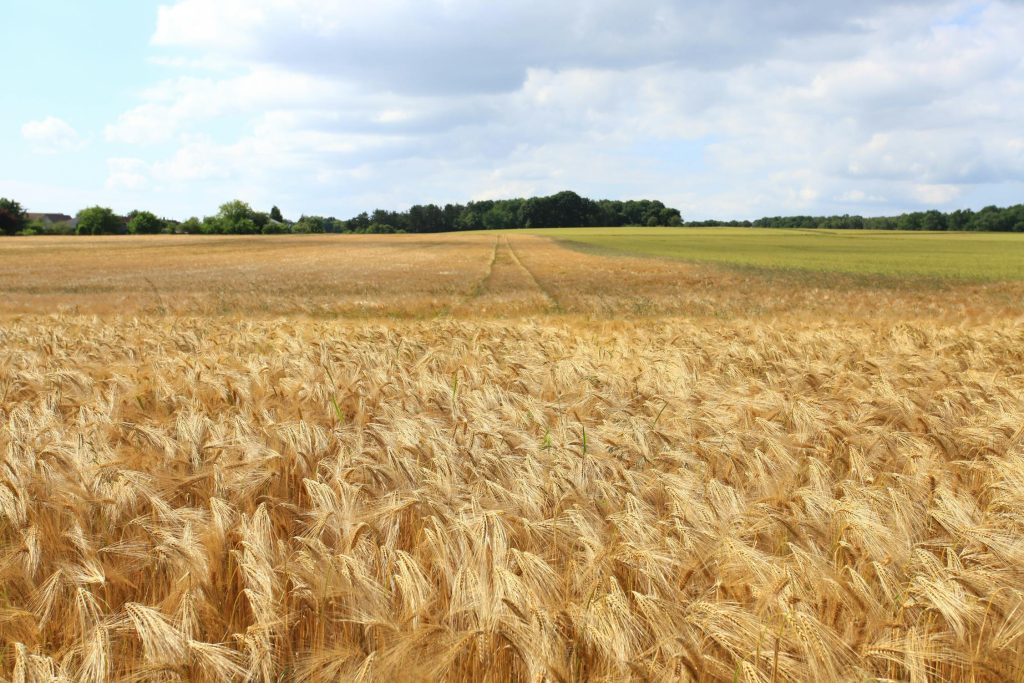
Do Agri-Environmental Schemes Really Boost Eco-Efficiency? A Look at Hungarian Crop Farms
By Lajos Baráth and Imre Fertő
The agricultural sector faces a delicate balancing act: increasing food production to meet the growing global demand while mitigating environmental damage caused by farming. Agri-Environmental Schemes (AES), implemented through the European Union’s Common Agricultural Policy, have been the main tool to incentivize farmers to adopt environmentally friendly practices. But do these schemes actually enhance eco-efficiency, helping farmers produce more with fewer resources and less environmental impact? Our recent study focuses on Hungarian crop farms to answer this pressing question.
What is Eco-Efficiency?
Eco-efficiency refers to the ability to create economic value while minimizing environmental harm. In the context of agriculture, this means producing food while using fewer pesticides, fertilizers, and energy, and reducing greenhouse gas emissions and other pollutants. The concept has gained traction as a way to evaluate the sustainability of farming practices, particularly in the light of climate change and biodiversity loss.
The Role of Agri-Environmental Schemes
Agri-Environmental Schemes (AES) were introduced in the 1990s as part of the EU’s Common Agricultural Policy (CAP) to address the environmental impact of intensive farming practices. By offering financial compensation to farmers who adopt more sustainable methods, AES aims to reduce the negative ecological effects of agriculture, such as soil degradation, water contamination, and loss of biodiversity.
However, while AES have been praised for their environmental benefits, there has been limited research on their impact on eco-efficiency. Baráth’s study fills this gap by examining whether participation in AES improves eco-efficiency among Hungarian field crop farmers.
Key Findings: No Significant Difference
We analyzed data from Hungarian farms over a six-year period (2015-2020), using advanced techniques such as Data Envelopment Analysis (DEA) to compare the eco-efficiency of farms participating in AES with those that do not. The results were striking: there was no significant difference in eco-efficiency between participating and non-participating farms.
This finding challenges the assumption that simply participating in AES leads to more eco-efficient farming. While AES may encourage sustainable practices, such as reduced pesticide use, these measures do not necessarily translate into higher eco-efficiency. In fact, non-participating farms often performed just as well, if not better, in terms of eco-efficiency.
Why Aren’t AES More Effective?
Several factors could explain why AES participation did not significantly improve eco-efficiency. One possibility is that many farmers who join AES are already practicing sustainable farming methods. For these farmers, AES may provide financial support without necessarily driving further improvements in eco-efficiency.
Additionally, AES measures are often generalized across regions, without being tailored to local environmental and agricultural conditions. What works in one area might not be effective in another, suggesting the need for more locally adapted schemes.
Policy Implications: Time to Rethink AES?
The findings from our study raise important questions about the future of agri-environmental policies. If AES are not boosting eco-efficiency as intended, policymakers may need to rethink how these schemes are designed and implemented.
One potential solution is to create more targeted AES programs that focus on farms with the greatest potential for eco-efficiency gains. By tailoring subsidies and incentives to specific farm characteristics—such as size, location, and current environmental impact—policymakers could increase the overall effectiveness of AES.
Moreover, the study highlights the need for improved data collection. While eco-efficiency is an important metric, it only captures part of the picture. To fully understand the environmental impact of AES, more detailed data on factors like soil health, biodiversity, and greenhouse gas emissions is needed.
Conclusion: The Future of Sustainable Farming
Agri-Environmental Schemes are a critical component of the EU’s efforts to make farming more sustainable. However, Baráth’s study suggests that their impact on eco-efficiency may be limited. As policymakers look toward the future, it is essential to design AES that not only support environmentally friendly practices but also drive meaningful improvements in eco-efficiency. This will be crucial in meeting the EU’s ambitious sustainability goals, including those set out in the Green Deal and the Farm to Fork strategy.
Baráth, L., Bakucs, Z., Benedek, Z., Fertő, I., Nagy, Z., Vígh, E., Debrenti, E., & Fogarasi, J. (2024). Does participation in agri-environmental schemes increase eco-efficiency?. Science of the Total Environment, 906, 167518.


